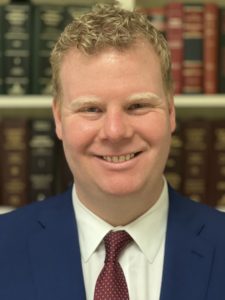By Ben Gettinger
Milford-Orange Probate Court

Ben Gettinger
In Connecticut, a conservatorship is a legal proceeding where the probate court appoints a person, called a conservator, to oversee the financial or personal affairs of an adult.
There are two types of conservatorships: involuntary and voluntary.
In an involuntary conservatorship, a conservator is appointed only if the court finds the individual is incapable of managing their daily affairs or incapable of managing their finances. The court’s finding of incapability usually requires recent medical evidence from an examining physician.
In a voluntary conservatorship, the court appoints a conservator at the request of the individual without making a finding of incapability.
There are also two types of conservators: conservator of the person and conservator of the estate.
A conservator of the person oversees the personal affairs of the individual and is responsible for ensuring the basic needs of the individual are being met. Those basic needs include food, shelter, clothing and health care.
A conservator of the estate oversees the individual’s assets and finances, including managing, protecting and safeguarding the individual’s property, financial accounts and income.
The conserved person can have a conservator of the person, conservator of the estate or both. If the conserved person has both, the conservator of the person and conservator of the estate can be the same person or two separate people.
For example, a conserved person may have their spouse serving as both the conservator of the person and estate, while another conserved person may have their spouse serving as the conservator of the person and their adult daughter serving as the conservator the estate.
The probate court will often appoint a family member or a close friend to serve as the conservator. However, some circumstances require the appointment of an uninterested party, such as an attorney or professional conservator.
The are many safeguards in place to protect individuals from unnecessary conservatorships, as well as safeguards in place to protect the rights of those conserved. I will explore those safeguards in the next column.
In the meantime, you can always call the Milford-Orange Probate Court at 203-783-3205 if you have any questions about conservatorships.
Ben Gettinger is the probate judge for the Milford-Orange Probate Court.